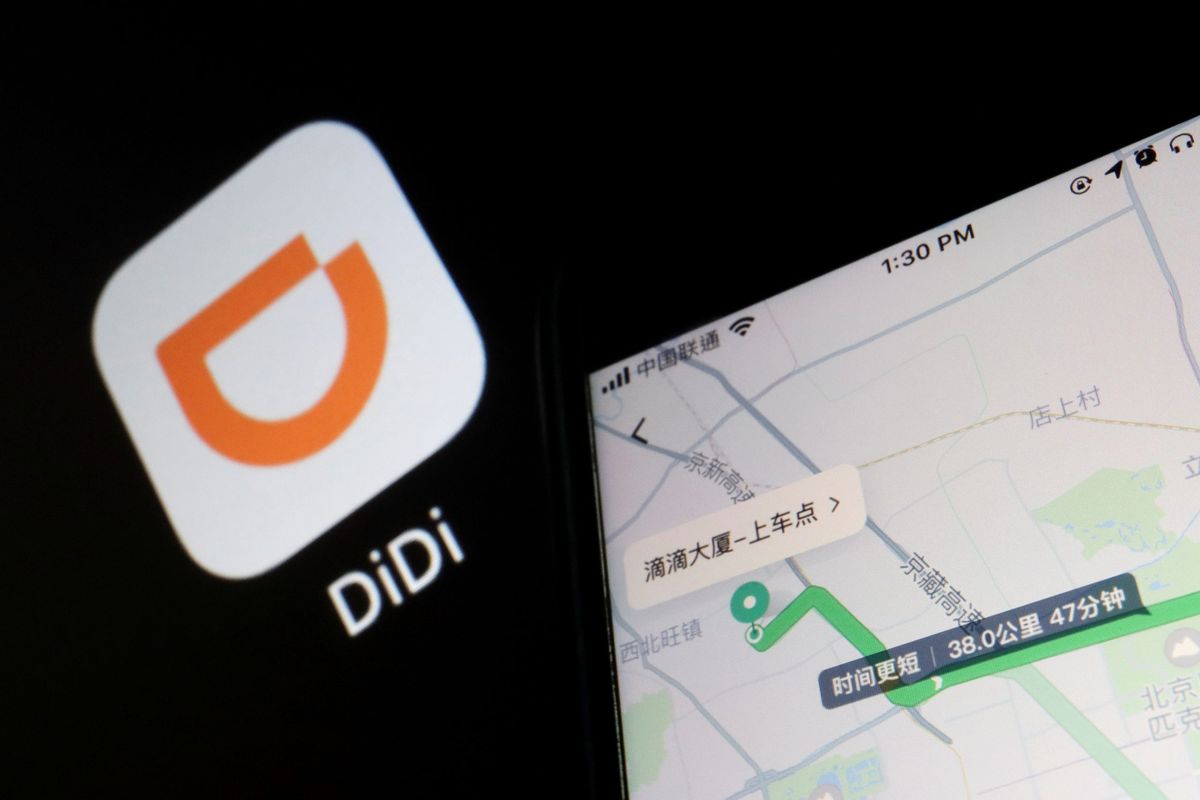Everything you need to know about Didi’s mounting domestic challenges amid its US$4 billion IPO

A few minutes every morning is all you need.
Stay up to date on the world's Headlines and Human Stories. It's fun, it's factual, it's fluff-free.
The mounting tensions between big tech companies in China and the Chinese government, have led to some less than ideal circumstances for the company only days after the IPO launched.
- Last week, Didi Global Inc. finally went public after unveiling its Initial Public Offering (IPO) earlier this year.
- While the company may be facing issues as it intends to expand to international markets, the company remains optimistic about the future
Who is Didi?
- Didi, which is headquartered in Beijing, has over 550 million users and tens of millions of active drivers.
- According to PitchBook data, the company was most recently valued at US$62 billion following an August fundraising round.
- In 2016, Didi acquired Uber China after Uber’s then-chief executive officer, Travis Kalanick, claimed the company was losing over US$1 billion annually in the Chinese market.
- Part of the deal gave Uber the opportunity to own about 15% of the company, so the former rival is now invested in the success of Didi.
- In late July, the company got approval to test their self-driving vehicles in Beijing, and the company’s IPO was met with initial success as the company’s shares increased on the first day they were available.
- Didi’s success, as it earned millions, show how much American investors were willing to look past both the US and Chinese governments’ tightening grip around Chinese companies.
How is Didi moving into international territory?
- The ride-sharing company began expanding internationally in 2018, and the company now operates in 14 countries outside of its main market in China.
- Brazil and Mexico are some of the largest contributors to the app and these were two of the first countries that Didi launched in.
- Part of the proceeds raised from the IPO will also go to growing Didi’s presence in international markets, according to the company’s IPO documents.
- “We aspire to become a truly global technology company. While our business started in China, we believe we can help make life better for many more people around the world in a similar way,” said Cheng. “What we have learned and built is relevant across the globe – in Latin America, Russia, South Africa or anywhere where affordable, safe and convenient mobility is valuable.”
- While the company has big plans for the future, there are some hurdles that the company needs to overcome before they can get there.
How does Didi work into the tech war between the US and China?
- If it was not obvious at this point, the US and China are still locked into a battle over tech and trade.
- Back in June, American President Joe Biden announced that investors would not be able to invest in companies that have ties to the Chinese military.
- Didi doesn’t have ties to the Chinese military, so the company was able to launch its IPO in the US without any problems.
- But the mounting tensions between big tech companies in China and the Chinese government, have led to some less than ideal circumstances for the company only days after the IPO launched.
What happened after the launch of the IPO?
- While Didi’s opening day on the market went relatively smoothly, the following days have not gone so well for the company.
- Just two days after the launch day, China announced that they were suspending the company from registering new users on the application.
- China put the suspension in place “to prevent the expansion of risk" during a “cybersecurity review" into the company, according to a statement from the country’s cyberspace administration.
- Two days later, the Cyberspace Administration of China (CAC) banned the application from app stores and said, “Didi Chuxing app is found to have severely violated the laws by illegally collecting and using personal information.”
- It called on Didi to fix the issue with its app to comply with the country’s laws and to ensure its customers’ safety.
How is Didi moving forward?
- According to Didi, the company’s best course of action is to comply with the Chinese government’s cybersecurity safety measures.
- “We sincerely thank the competent authority for guiding Didi to investigate risks,” Didi said in a Sunday statement. “We will earnestly rectify and reform, continuously improve risk prevention awareness and technical capabilities, continue to protect user privacy and data security, prevent network security risks, and continue to provide users with safe and convenient services.”
- The actions taken by the Chinese government were part of legislation passed last month that would ensure that big tech companies in China would not give away user data to outside nations.
- The Data Security Law (DSL) aims to better protect the individuals in China as it relates to their data while punishing businesses who do not follow the new legislation with fines up to 10 million yuan as well as possible closure of the company.
- Didi isn’t the only company facing scrutiny as China cracks down on Tencent and Alibaba for their allegedly unfair labor practices that have led to these companies becoming monopolies within China.
Have a tip or story? Get in touch with our reporters at tips@themilsource.com




Comments ()